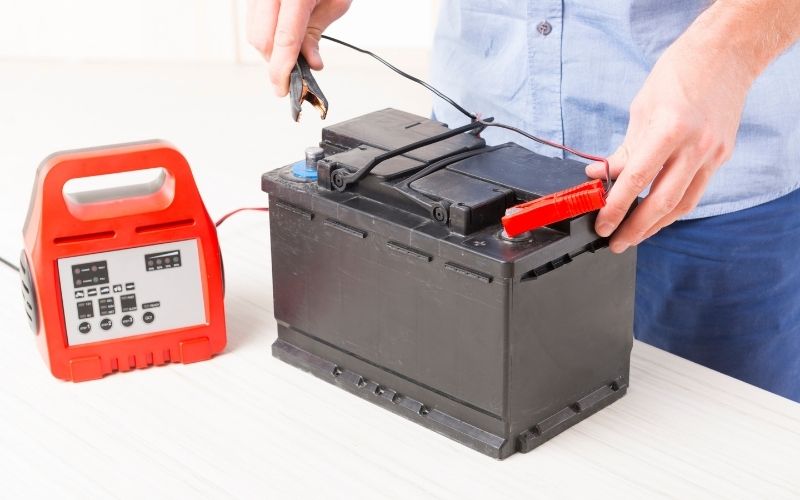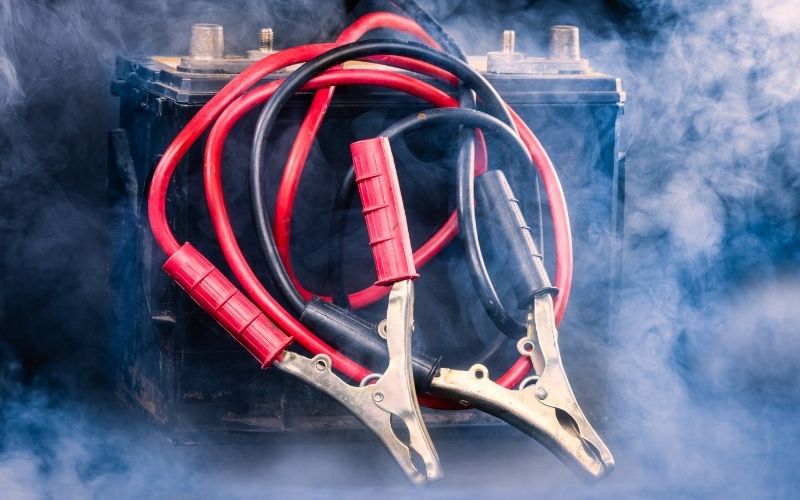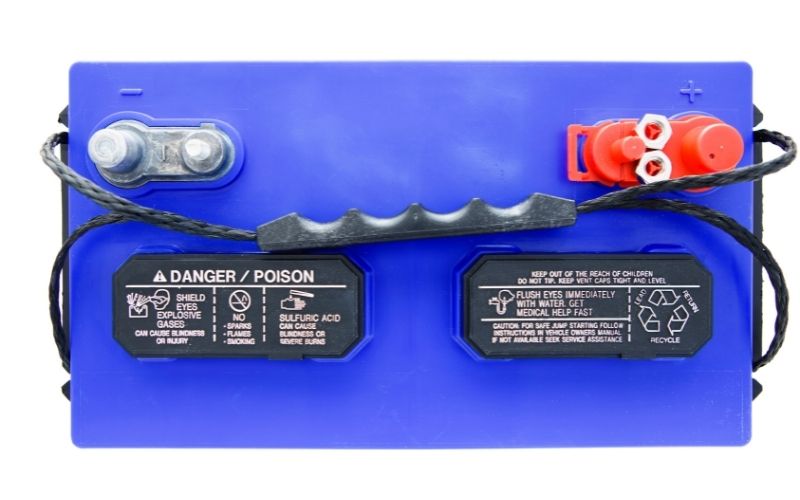Whether you are an old sea-hand or just curious about life on the water, getting to know boats and how they work is essential. Unless you plan to row, each boat needs power for its motors and other electrical components onboard.
In this article, we will become familiar with the best type of battery you should use. In addition, we will help you understand why your battery gets hot while charging.
Table of Contents
What is a Marine Battery?
Marine batteries are specifically designed for boat use. They have heavier plates and more robust construction to withstand vibrations and pounding onboard powerboats. However, marine batteries are more expensive than auto batteries.
Frequently, it is tempting for boat owners to buy an automobile battery over a marine one. However, despite the apparent dip in price, a marine battery is more durable and reliable than an automotive battery on a boat, and the last thing you want is to find yourself stranded out in the open water.
Types of Marine Batteries
- Marine Starting Batteries: Quick and powerful; these are explicitly used for starting the engine of your boat. However, they are not designed to be used to charge other electronics for an extended period. Instead, they produce intense spurts of energy over short periods and quickly recharge by an engine alternator.
- Marine Deep Cycle Batteries: These batteries can be discharged slowly and withstand hundreds of charging and discharging cycles. Therefore, deep cycle batteries are the best choice to power an electric trolling motor and other battery-powered accessories like a windlass and depth finders.
- Marine Dual-Purpose Batteries: Ideal for smaller spaces where there isn’t enough space for two. They can perform the same tasks as a deep cycle and starting battery, but they are not as efficient.
Is it Normal for a Marine Battery to Get Hot When Charging?
As expected with any battery, it is normal for your marine battery to get warm to the touch while charging. However, excessive or high heat is not an expected outcome of this process.
If you find it difficult to touch your battery when it’s charging, that shows a sign of a deeper problem which should be fixed as soon as possible.
Why is my boat battery getting hot when charging?

A battery that gets too hot while charging may be overheating, improperly installed, or you may be charging with an incorrect charger.
Overheating
It may seem obvious, but batteries can get very hot if the temperature outside is higher than inside. It would help if you charged at the right temperature to prevent your marine battery from overheating.
The battery should not be charged at temperatures higher than 104° Fahrenheit (40° Celsius) or lower than 32° Fahrenheit (0° Celsius). This will protect your battery against overheating and ensure that it lasts as long as possible.
Improper Installation
Poor installation is a sneaky way to fail and can cause acid leaks, fire, or battery explosion. In addition, things like loose cables and poorly maintained posts can decrease a battery’s life expectancy.
Charging with the incorrect charger
Your marine battery can overheat if you use an incorrectly fitted charger or connect it poorly. Use the correct charger for your marine batteries, and don’t try to plug it in with a different type of charger.
What Happens if I Overcharge a Marine Battery?

It isn’t often that people consider the dangers of overcharging your marine battery. However, this practice can cause problems for you, including costly repairs like replacing a battery.
When you overcharge your battery, you cause the acid inside to boil or percolate. When the acid boils, it can cause your battery to crack, ruining the battery completely.
One of the main culprits of overcharging is using the wrong charger. For example, many people skip the added expense of buying a marine battery charger built to accommodate the battery’s needs. Instead, some choose to use car-type batteries, allowing too much current and damaging the batteries’ components.
On the other hand, using cheap parts, in general, poses a problem for using your batteries. In most cases, inferior parts will decrease the longevity of the battery. However, some parts that are not designed to regulate the amount of current the battery receives may cause your marine battery to get hot.
Can You Undercharge a Battery?
Both overcharging and undercharging can reduce your marine battery’s lifespan and degrade its performance. While undercharging your battery may not cause it to get hot, you must know that you should recharge your battery after each use and measure the battery capacity before you leave it.
How Do I Avoid Battery Problems?
Secure your Battery
Ensure the marine battery is secured in a good battery tray which is screwed or bolted onto the boat. Additionally, the base should also have a rigid bracket or locking strap. You don’t want to put your battery at risk of being tossed around when the waves are rocky.
Use the Right Onboard Battery Charger

Each marine battery comes with a specific charger. These chargers are the approved charging option set out by the manufacturer. However, some people use whatever chargers are available at the time.
It might seem like a good option, but it may cause long-term damage to your marine battery, and as mentioned earlier, it could be the cause of overheating. Avoid any damage to the unit by using an approved charger.
Keep your Terminals Free from Corrosion

Regularly check the connections between battery terminals to ensure they are tight and free from corrosion. Nylon locking nuts are better than the wing nuts that marine batteries often have. This is because they are less likely to become loose.
Try a Maintenance Charger if you Don’t Boat Often
You can use a maintenance-type charger to charge the battery between trips if you often don’t use your boat.
Disconnect Terminals to Preserve Charge
Before storing in the off-season, fully charge the battery, disconnect the terminals, and turn off the power source. To ensure your batteries are maintained throughout the year, charge them with a battery maintainer/charger if there is power at your storage location. If not, remove the batteries from your boat and place them somewhere connected with a maintenance charger.
Cover the Terminal with a Boot
If the boat builder did not install a boot, cover the top of the positive terminal. If a tool or other object is dropped on the terminal, it will prevent sparks, arcing, and possibly explosion.
Charge Your Battery After Every Use
After a day on the water, it’s vital to charge your battery. Many people don’t realize the importance of an alternator keeping their batteries at an optimal charge.
Getting to know marine batteries is much easier than you’d think. Now that you are more aware of what to do if your marine battery overheats, you can feel more confident troubleshooting problems before you take your boat out for a ride. Your battery is the heart of your boat, and taking care of it means a safe, happier trip.

I created this site to help people – to help you – with your boat problems. Instead of helping one person at a time, I want this website to be the “one-stop-shop” for everyone’s boating concerns. Read more.

